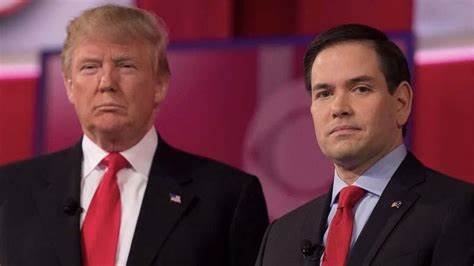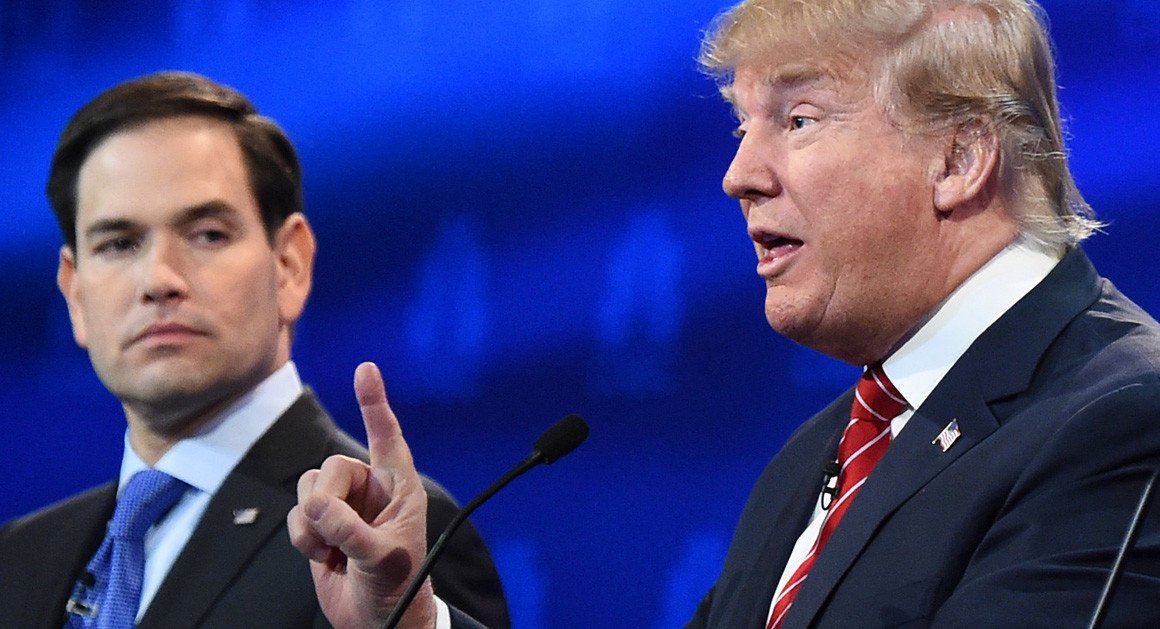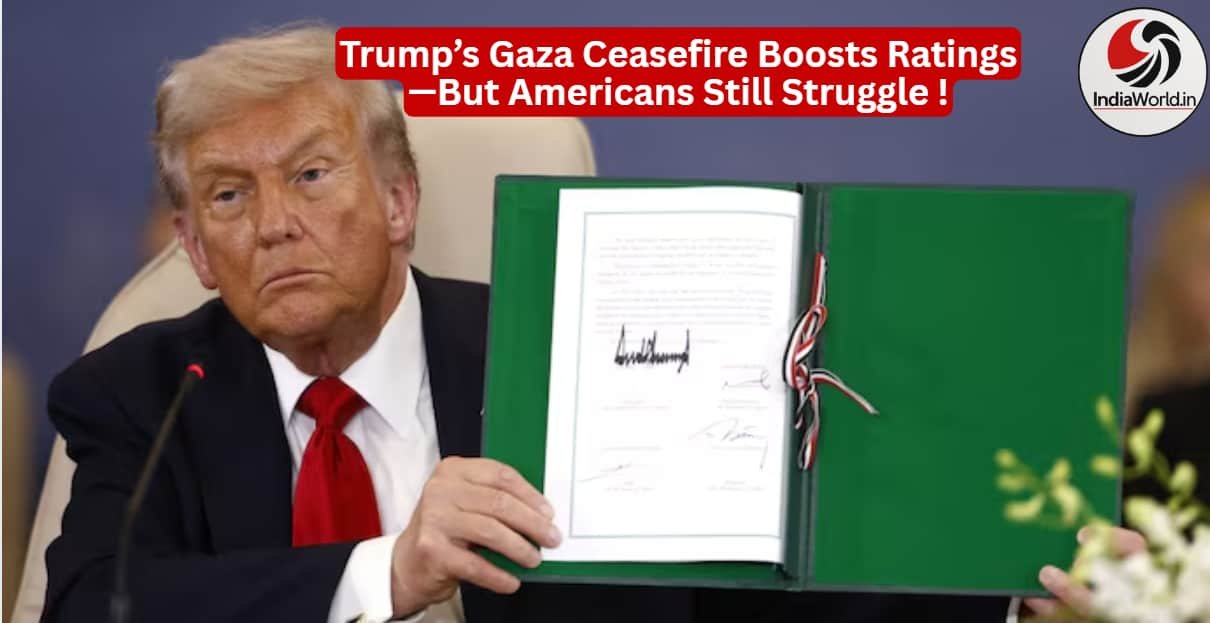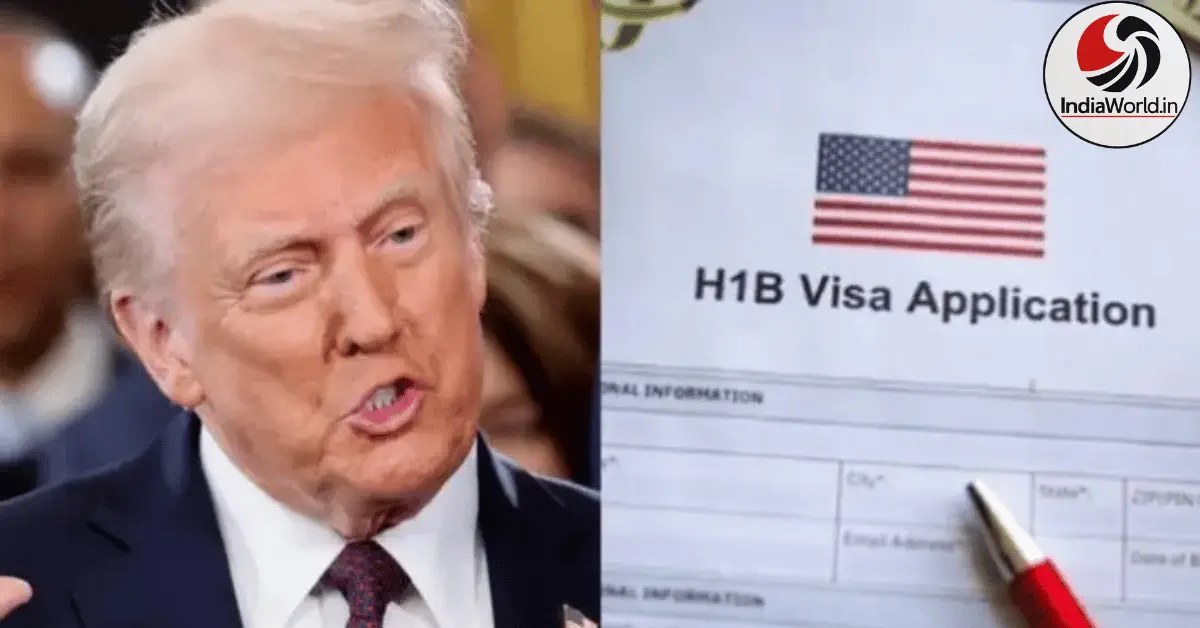From Rival to Right-Hand: Marco Rubio Rises in Trump’s Inner Circle Amid National Security Shakeup

Washington, D.C.
On a sweltering Thursday afternoon in the White House Rose Garden, President Donald Trump paused his remarks on restoring faith in American leadership to nod toward a familiar face in the front row.
“When I have a problem, I call up Marco,” Trump said, gesturing toward Secretary of State Marco Rubio. “He gets it solved.”
That offhand comment belied a significant behind-the-scenes shift in Trump’s administration. Unknown to many attending the event, Trump had already made a decision that would both elevate Rubio’s role and quietly sideline his now-former national security adviser, Mike Waltz.
A Quiet Power Shift
Waltz, a decorated former Green Beret and congressman from Florida, had fallen out of favor in recent weeks—most notably after mistakenly including a journalist in a group chat discussing a sensitive U.S. military operation in Yemen. The breach caused internal uproar, reignited memories of past leaks, and cast doubt over Waltz’s judgment in a high-stakes role.
The tipping point came earlier this week, when Trump refused to allow Waltz to accompany him on Air Force One to Michigan, where the president unveiled new defense investments. Waltz made it as far as Joint Base Andrews but was left standing on the tarmac as the plane took off—a symbolic signal that his influence had evaporated.
Still, Trump hesitated. Firing a top official, especially his national security adviser, can echo with implications of instability. It’s a cycle Trump experienced during his first term, one marked by a carousel of firings and media storms. This time, he sought a quieter path.
Rubio Steps In—Again
By Thursday afternoon, the solution emerged: Waltz would be nominated to serve as ambassador to the United Nations, a role he never lobbied for and is geographically far removed from the action of the West Wing. Trump announced the move on social media, adding that Rubio would take over as national security adviser on an interim basis—while continuing his work as Secretary of State and holding several other acting roles.
“Thank you for your attention to this matter!” Trump quipped online, offering no further comment as he departed the White House.
For Waltz, it was a reassignment that looked a lot like a quiet dismissal. For Rubio, it was a major leap forward in a relationship that has taken a dramatic arc: from rivals in the 2016 presidential primary to one of the president’s most trusted lieutenants.
The Human Side of Power
Inside the halls of power, this kind of decision may seem tactical, even transactional. But for those involved, the human element is inescapable. Waltz—once hailed as a rising Republican star—was trying to stay relevant in an administration that increasingly sidelined him. As recently as Thursday morning, he appeared on Fox News defending the president’s foreign policy, perhaps unaware that within hours he’d be out of his job.
Rubio, on the other hand, has learned to navigate the Trump era with pragmatism. Once dubbed “Little Marco” by Trump during their bitter primary battle, he has since become a constant presence at the White House, often opting to stay close to the president rather than jetting to international capitals like his predecessors. While other secretaries of state globe-trot, Rubio stays rooted in Washington—available, visible, and, crucially, useful.
That dedication has paid off.
A Flashback to Kissinger?
Some observers are drawing parallels between Rubio and Henry Kissinger, the storied diplomat who held both the Secretary of State and National Security Adviser posts under Presidents Nixon and Ford. Whether Rubio’s dual role becomes permanent or is simply a stopgap remains to be seen, but for now, he’s shouldering an enormous responsibility during a critical moment in global affairs.
From ceasefire talks in Ukraine to the spiraling situation in Gaza, the world stage is as volatile as ever. Add the growing tension with China and ongoing threats from Iran-backed Houthi rebels in Yemen, and Rubio’s plate is beyond full.
Yet, according to insiders, Trump believes Rubio can manage the load—especially with the added benefit of proximity. Rubio isn’t just a skilled politician; he’s become an anchor in a White House that values personal loyalty above all else.
Fallout and Frustration
For Mike Waltz, the exit stings. His mishandling of sensitive information—particularly the group chat scandal involving journalist Jeffrey Goldberg of The Atlantic—eroded the trust he once enjoyed. Though he’s not the first Trump adviser to stumble, his mistake was both public and unforced.
In contrast, Defense Secretary Pete Hegseth, who also mishandled classified information in a separate chat (this one including his wife and brother), has managed to retain Trump’s favor. Why the double standard? It comes down to loyalty, influence, and visibility in Trump’s political base. Hegseth, a MAGA favorite with deep grassroots support, was too valuable to cut loose.
Waltz, while capable and credentialed, lacked that protective base of support. His ouster, though softened by a diplomatic reassignment, sends a clear message: loyalty and optics matter just as much—if not more—than competence in Trump’s orbit.
The Scene Behind the Scenes
Back at the Rose Garden ceremony, as Trump spoke under the hot midday sun, Rubio and Hegseth sat directly in the heat, their expressions unreadable. Chief of Staff Susie Wiles remained in the shade, her mirrored aviators shielding her gaze as she took in the scene. Wiles, who never advocated for Waltz despite their shared Florida roots, had earlier warned Pentagon leaders: there would be no more room for “mistakes or embarrassments.”
Later, as the ceremony wound down, Rubio stepped into the shade, eyes glued to his phone—likely scanning messages, updates, or perhaps responses to the news of his expanded duties. In that small moment, the contrast between the calm exterior and the flurry of activity beneath the surface was palpable.
A Defining Moment
In many ways, Thursday marked a defining shift—not just for Trump’s national security team, but for the arc of Marco Rubio’s career. Once written off as a failed presidential candidate, Rubio has reemerged not only as a survivor but as a strategic centerpiece in Trump’s second-term leadership.
For a country still navigating crises both at home and abroad, Rubio’s rise carries weight. His ability to juggle diplomacy, defense, and now national security will be tested in real-time—and under the intense scrutiny that accompanies life in Trump’s orbit.
As one White House staffer put it, “He’s not just wearing multiple hats—he’s wearing a whole wardrobe.”
The question now isn’t whether Rubio will succeed—it’s how long he can sustain the pressure.
Would you like a human-interest sidebar story on Waltz’s journey or a visual chart comparing past dual-role officials like Kissinger and Rubio?





